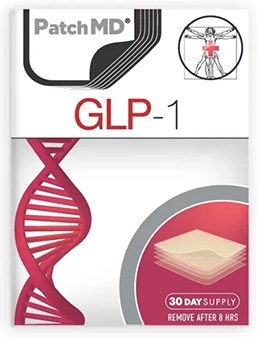Key Takeaways
- Ozempic works as a GLP-1 receptor agonist, while Retatrutide is a triple receptor agonist (GLP-1, GIP, and glucagon), which may contribute to greater weight loss effects.
- Ozempic users typically see 15–20% body weight reduction, while early trials of Retatrutide show up to 24% reduction, suggesting potentially superior results.
- Ozempic is FDA-approved and widely available, whereas Retatrutide is still in Phase 3 clinical trials with approval expected around 2026–2027.
The landscape of weight loss medications has transformed dramatically with the emergence of injectable therapies delivering unprecedented results. Among these breakthrough treatments, two medications stand at the forefront of obesity management: Ozempic (semaglutide) and retatrutide. While Ozempic has established itself as a proven weight loss solution with FDA approval, retatrutide represents the next generation of weight loss injections, showing remarkable promise in early clinical trials.
For individuals embarking on their weight loss journey, understanding the differences between these medications becomes crucial for making informed treatment decisions. This comprehensive comparison examines their mechanisms of action, clinical efficacy, safety profiles, and practical considerations to help you navigate the evolving world of weight loss drugs.
Quick Comparison: Retatrutide vs Ozempic
| Aspect | Ozempic (Semaglutide) | Retatrutide |
|---|---|---|
| Mechanism | GLP-1 receptor agonist | Triple receptor agonist (GLP-1, GIP, glucagon) |
| FDA Status | FDA approved (2017) | Phase 3 trials (approval expected 2026-2027) |
| Average Weight Loss | 15-20% body weight | Up to 24% body weight |
| Administration | Weekly injection | Weekly injection |
| Primary Indication | Type 2 diabetes, weight management | Obesity treatment (investigational) |
| Availability | Widely available | Clinical trials only |
| Insurance Coverage | Variable, often covered | Not available commercially |
Ozempic (semaglutide) represents the current gold standard among glp 1 receptor agonists, achieving significant weight loss of 15-20% in clinical trials. As an FDA approved medication, it offers proven efficacy for both diabetes management and weight management, making it accessible to patients needing immediate intervention.
Retatrutide emerges as a promising alternative that retatrutide targets multiple receptors simultaneously. This experimental medication has demonstrated impressive weight loss results exceeding 24% in early trials, potentially setting new standards for obesity treatment. However, both retatrutide and ozempic require careful medical supervision due to their powerful effects on metabolic processes.

What is Ozempic (Semaglutide)?
Ozempic represents a breakthrough in diabetes medications that has revolutionized weight management approaches. Originally developed as a glp 1 receptor agonist for type 2 diabetes in 2017, this medication quickly gained recognition for its remarkable ability to promote weight loss. The FDA approved Ozempic for diabetes management, while its higher-dose formulation, Wegovy, received approval specifically for chronic weight management.
Healthcare providers prescribe Ozempic in carefully calibrated doses ranging from 0.25mg to 2.4mg, following a gradual titration schedule to minimize side effects. This medication has become widely accessible through insurance plans and pharmacy networks, making it a practical option for patients seeking proven weight loss medications.
Ozempic Mechanism of Action
Ozempic works by mimicking glucagon like peptide 1, a natural hormone released from the intestines after eating. This sophisticated mechanism allows the medication to regulate blood sugar and control appetite through multiple pathways. When administered, Ozempic stimulates insulin secretion from pancreatic beta cells while simultaneously suppressing glucagon release, effectively lowering blood sugar levels.
The medication’s ability to slow gastric emptying creates prolonged satiety, helping patients reduce appetite and consume fewer calories throughout the day. This dual action on blood sugar control and appetite regulation makes Ozempic particularly effective for individuals managing both diabetes and obesity. As a single-receptor targeting agent, it provides focused metabolic effects that have been extensively studied and validated in clinical practice.
Ozempic Clinical Results and Efficacy
Clinical trials consistently demonstrate Ozempic’s impressive weight loss results, with participants achieving 15-20% average weight loss over 68 weeks. These studies reveal that patients experience significant reductions in body weight, often losing 30 pounds or more during their weight loss journey. The medication also delivers substantial improvements in glycemic control, reducing HbA1c levels by 1.5-2.0% in diabetic patients.
Beyond weight management, Ozempic provides proven cardiovascular benefits, including reduced risk of major adverse events such as heart attack and stroke. This comprehensive impact on metabolic health has made it a cornerstone treatment for healthcare professionals managing patients with complex cardiometabolic conditions. Long-term safety data spanning over five years of clinical use supports its established safety profile for extended treatment periods.
What is Retatrutide?
Retatrutide (LY3437943) represents the next frontier in obesity management, developed by Eli Lilly as an experimental triple-hormone receptor agonist. Currently advancing through Phase 3 clinical trials, this innovative medication targets multiple metabolic pathways simultaneously, offering the potential for superior weight loss compared to existing treatments. With an expected FDA approval timeline of 2026-2027, retatrutide remains accessible only through clinical trial participation.
Unlike traditional weight loss medications that focus on single pathways, retatrutide’s comprehensive approach to metabolic regulation positions it as a potentially transformative treatment for managing obesity. Healthcare professionals closely monitor its development, anticipating that this medication could establish new standards for obesity treatment when it becomes commercially available.
Retatrutide Mechanism of Action
Retatrutide’s groundbreaking approach involves targeting multiple receptors that regulate different aspects of metabolic health. Through GLP-1 receptor activation, it stimulates insulin secretion while promoting appetite suppression, similar to existing glp 1 receptor agonists. However, its additional targeting of glucose dependent insulinotropic polypeptide (GIP) receptors enhances its influence on glucose and lipid metabolism, creating synergistic effects that amplify metabolic improvements.
The third component of retatrutide’s mechanism involves glucagon receptor stimulation, which increases energy expenditure and promotes fat metabolism. This unique triple-receptor approach enables comprehensive metabolic regulation, potentially leading to more significant weight loss and improved metabolic health compared to single-receptor medications. By targeting multiple receptors, retatrutide aims to address obesity through enhanced fat loss, increased metabolism, and superior appetite control.

Retatrutide Clinical Trial Results
The SURMOUNT-1 Phase 2 clinical trial delivered remarkable results that captured global attention in the obesity research community. Participants receiving retatrutide achieved weight loss ranging from 8.7% to 24.2% depending on dosage, with the highest dose group averaging 24% body weight reduction over 48 weeks. These impressive weight loss results significantly exceeded those achieved by placebo groups and surpassed outcomes from existing weight loss drugs.
Early data from these trials also revealed significant improvements in cardiometabolic parameters, including substantial reductions in blood pressure and improvements in insulin sensitivity. Participants experienced promising results across multiple health metrics, suggesting that retatrutide’s benefits extend beyond simple weight reduction. Ongoing Phase 3 trials continue evaluating long-term safety and cardiovascular outcomes, with results expected to provide crucial data supporting potential FDA approval.
Head-to-Head Comparison: Efficacy and Weight Loss
When comparing these two weight loss medications directly, retatrutide demonstrates superior weight loss potential, achieving up to 24% body weight reduction compared to Ozempic’s 15-20% in respective clinical trials. Both medications show similar onset of action, with patients typically experiencing initial weight loss within 4-8 weeks of starting treatment. However, the magnitude of weight reduction appears more pronounced with retatrutide’s multi-receptor approach.
Ozempic benefits from extensive long-term sustainability data, with studies demonstrating maintained weight loss and continued health benefits over several years of treatment. Retatrutide’s sustainability data remains limited to clinical trial periods under 48 weeks, creating uncertainty about long-term effectiveness. Individual response to both medications varies significantly based on baseline BMI, diabetes status, adherence to treatment protocols, and overall health conditions.
The medication’s effectiveness in promoting weight loss depends heavily on patient-specific factors and medical supervision. Healthcare providers consider multiple variables when determining which treatment might achieve optimal weight loss goals for individual patients.
Side Effects and Safety Profile Comparison
Both medications share similar gastrointestinal side effects profiles, with nausea, vomiting, and diarrhea representing the most common adverse events reported in clinical trials. These gastrointestinal issues typically occur during initial treatment phases and often improve as patients adjust to the medication. Healthcare providers recommend gradual dose escalation to minimize these side effects and improve patient tolerance.
Retatrutide may demonstrate higher incidence of GI issues due to its triple-receptor activation affecting multiple metabolic pathways simultaneously. Early clinical trials suggest that targeting multiple receptors could intensify digestive side effects, particularly at higher doses. However, comprehensive safety data for retatrutide remains limited to clinical trial populations under medical supervision.
Ozempic carries an established safety profile with identified rare but serious risks, including pancreatitis and potential thyroid cancer concerns. Both medications are contraindicated in patients with personal or family history of medullary thyroid carcinoma. Healthcare providers carefully screen patients for these risk factors before initiating treatment with either medication.

Dosing and Administration
Both retatrutide and Ozempic utilize convenient weekly injection schedules, administered subcutaneously using pre-filled pen devices. This once-weekly dosing significantly improves patient adherence compared to daily medications, making these treatments more practical for long-term weight management. Patients typically inject the medication into their abdomen, thigh, or upper arm, rotating injection sites to prevent tissue irritation.
Ozempic treatment begins with a 0.25mg starting dose, gradually titrated to maintenance doses of 0.5mg, 1mg, or 2mg based on patient response and tolerance. This careful dose escalation helps minimize gastrointestinal side effects while optimizing therapeutic benefits. Healthcare professionals monitor patients closely during dose adjustments to ensure safe and effective treatment progression.
Retatrutide dosing in clinical trials ranges from 1mg to 12mg weekly, with researchers evaluating optimal dose selection for future commercial use. Early trials demonstrate dose-dependent effects, with higher doses producing more significant weight loss but potentially increased side effects. The final approved dosing schedule awaits completion of Phase 3 trials and regulatory review.
Availability and Cost Considerations
Ozempic enjoys wide availability through pharmacy networks, with average monthly costs ranging from $800-1000 without insurance coverage. Insurance coverage varies significantly among different insurance plans, often requiring prior authorization specifically for weight loss indications rather than diabetes management. Patients frequently navigate complex approval processes to access coverage for obesity treatment versus diabetes medications.
Healthcare providers assist patients in understanding insurance coverage options and exploring patient assistance programs offered by manufacturers. Many insurance plans provide better coverage when Ozempic is prescribed for diabetes management rather than purely for weight management, creating additional considerations for treatment planning.
Retatrutide remains unavailable commercially, accessible only through clinical trial participation at qualified research centers. Estimated commercial costs remain unknown until FDA approval and market introduction, though industry experts anticipate pricing similar to or potentially higher than current weight loss medications. Clinical trial participants typically receive the medication at no cost while contributing to important research advancing obesity treatment options.
Who Should Consider Each Medication?
Ozempic suits patients requiring immediate, proven intervention for weight management and diabetes management. Its established efficacy profile and FDA approved status make it appropriate for individuals who cannot wait for experimental treatments to complete development. Healthcare providers often recommend Ozempic for patients with type 2 diabetes seeking concurrent weight loss benefits.
Candidates for retatrutide include individuals requiring maximum weight loss potential who can participate in clinical trials or wait for regulatory approval. This medication may particularly benefit patients with severe obesity who have not achieved adequate results with existing treatments. However, access remains limited to qualifying participants at research centers conducting ongoing trials.
Both medications require comprehensive medical supervision and are contraindicated in patients with certain thyroid cancer risks. Healthcare providers conduct thorough medical evaluations, including personal or family history assessments, before recommending either treatment. A healthcare professional must evaluate individual health status, weight loss goals, and risk factors to determine appropriate treatment selection.
Future Outlook and Research Developments
Retatrutide’s Phase 3 trials, including SURMOUNT-2 and SURMOUNT-3 studies, are expected to complete by 2025, providing crucial data for regulatory submission. FDA submission is anticipated in 2025-2026, with potential approval by 2027 if trial results continue demonstrating safety and efficacy. These studies will establish long-term safety profiles and confirm sustained weight loss benefits observed in earlier trials.
Long-term cardiovascular outcome studies continue for both medications, evaluating their impact on heart disease prevention and overall mortality. These studies will provide essential data supporting expanded therapeutic applications and insurance coverage decisions. The pharmaceutical industry continues developing next-generation multi-receptor agonists and combination therapies, building on the success of current weight loss medications.
Healthcare providers anticipate that successful approval of retatrutide and similar medications will expand treatment options for patients struggling with obesity and related metabolic conditions. The evolution toward more effective obesity treatments represents a significant advancement in managing a condition affecting millions of individuals worldwide.

Conclusion: Making the Right Choice
Ozempic remains the gold standard for proven weight loss medication with an established safety profile and widespread availability. Its demonstrated efficacy in achieving significant weight loss, combined with cardiovascular benefits and diabetes management capabilities, makes it a reliable choice for immediate treatment needs. Healthcare providers can confidently prescribe Ozempic knowing its long-term safety and effectiveness profiles.
Retatrutide shows exceptional promise for superior weight loss through its innovative triple-receptor mechanism, potentially offering the most effective pharmaceutical obesity treatment once approved. However, patients must weigh the potential benefits against the uncertainty of awaiting regulatory approval and limited long-term safety data. The choice between these medications ultimately depends on urgency of treatment needs, individual health circumstances, and tolerance for experimental versus established therapies.
Both medications represent significant advances in obesity and diabetes management compared to traditional therapies, offering hope for individuals who have struggled with conventional weight loss approaches. Successful treatment with either medication requires commitment to lifestyle modifications, regular medical monitoring, and realistic expectations about the weight loss journey.
The decision between retatrutide vs ozempic should always involve thorough consultation with a healthcare provider who can evaluate your specific medical history, current health status, and weight loss goals. They can provide personalized guidance on which medication might be most appropriate for your individual circumstances and help navigate the practical considerations of treatment access and insurance coverage.
GLP-1 Support Supplements
For those exploring supportive or alternative approaches, the PatchMD GLP-1 Support Patch offers a convenient, non-injectable solution. Designed to complement GLP-1 medications like Ozempic, it may help patients maintain results while keeping dosages lower. It’s also an excellent standalone option for individuals who want appetite control and balanced blood sugar support without committing to injectable therapies.
Frequently Asked Questions
Meet the Author

Bradley Keys
Bradley Keys is an accomplished writer who has covered a wide variety of health, nutrition, and wellness topics. He graduated with a Bachelor of Science from Florida State University, and has extensively explored a diverse range of subjects within the realms of health, wellness, and nutritional supplementation, showcasing a broad and in-depth understanding of these interconnected fields.
Reviewed by :

Dr. Majid Sabour
Dr. Majid Sabour, MD, is a renowned expert in medical weight loss and the founder and medical director of Gent's Doctor clinic in Beverly Hills, California. With over 25 years of experience, Dr. Sabour is board-certified in family medicine and specializes in helping patients achieve their weight loss goals through personalized medical treatments. He graduated from Zaporizhzhia State Medical University in Ukraine and completed a family medicine residency program with Columbia University and Cornell at New York-Presbyterian Hospital in Manhattan. Licensed in both New York and California, Dr. Sabour is dedicated to providing comprehensive weight loss solutions that promote overall health and well-being.












